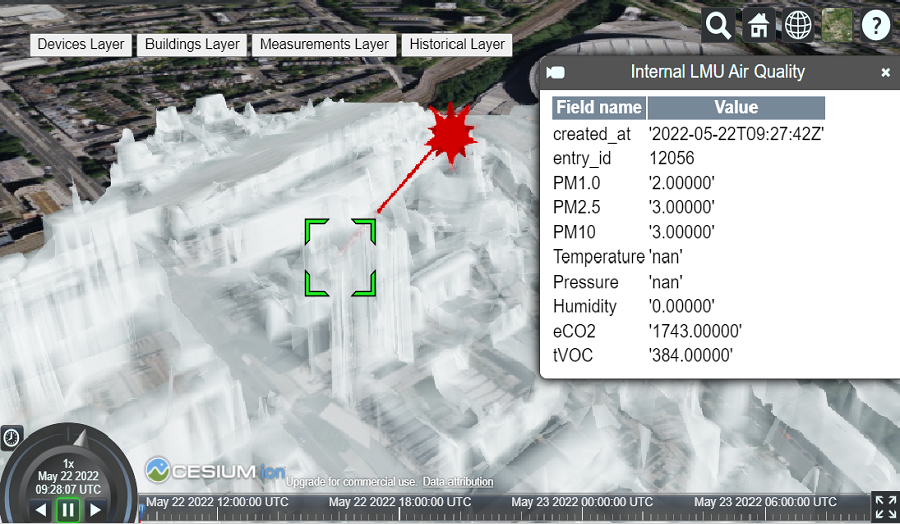Apply for this course
Please select when you would like to start:
If you're a UK applicant wanting to study full-time starting in September, you must apply via UCAS unless otherwise specified. If you're an international applicant wanting to study full-time, you can choose to apply via UCAS or directly to the University.
If you're applying for part-time study, you should apply directly to the University. If you require a Student visa, please be aware that you will not be able to study as a part-time student at undergraduate level.
Why study this course?
This is a fast-track route to a degree if you already hold a Higher National Diploma (HND) or have completed a foundation year in computing or a similar subject. Built-in opportunities for work placements give you a career edge even before you graduate and the course is taught by staff with industry links who ensure the content remains up-to-date every year.
Gain work experience while you study
Built-in opportunities for work placements give you a career edge even before you graduate
Learn from industry experts
You'll be taught by staff with industry links who ensure the content of the course remains up-to-date every year
Take your career prospects to the next level
This course will help you develop your foundation year or Higher National Diploma into a Bachelor of Science degree in Business Computer Systems
Course modules
The modules listed below are for the academic year 2024/25 and represent the course modules at this time. Modules and module details (including, but not limited to, location and time) are subject to change over time.
Year modules
Application Development
This module currently runs:all year (September start) - Friday afternoon
(core, 30 credits)
CS6004 Application Development 30 weeks: This module will equip students with essential knowledge and skills to become efficient software developers. The module will consolidate and integrate programming concepts and techniques which students have learned earlier in the degree for the purpose of application development for the real world. The module will also extend students’ knowledge and skills for them to be able to tackle issues pertinent to realistic application development projects.
The module delivery will be conducted in a practical fashion through exposing the student to one exemplar of modern development platform/technologies in depth and then requiring them to develop a significant software artefact using the exemplary toolset/development platform, and to reflect on the process and the solution. (Exam, course work and practical exam). It will cover risk assessment to identify and implement appropriate security.
The module aims are:
● To provide students with a disciplined understanding of the state of the art of application development in terms of development technologies, development platforms and toolsets, risk assessment and security in the broader context of the IT industry business.
● To consolidate the techniques and concepts introduced in earlier programming modules in order for students to be able to employ them in an integrated fashion in realistic application development projects.
● To introduce students to a major contemporary software development platform, including its programming languages and toolsets for application development.
● To train and equip students with necessary hands-on skills in using a major development platform and environment to design and implement a significant software application.
Data and Web Development
This module currently runs:all year (September start) - Friday morning
(core, 30 credits)
This module builds upon the student's general understanding of database design and implementation from prior learning. It discusses some key issues underpinning database management systems and their development, provides a strong coverage to advanced SQL, which helps preparing for professional certification. Introduces some current topics in database technology such as NoSQL. In addition, the module contains a substantial practical element utilising advanced SQL and full- stack web development framework application enabling students to gain transferable skills in designing and developing relatively complex ‘real life’ database applications using web database technologies.
The module will enable students to:
•Gain in-depth understanding of some key issues pertinent to the management and development of modern database applications.
•Acquire skills in advanced SQL which provides an opportunity for gaining professional certification.
•Introduced to current developments in database technology thereby raising students’ awareness and understanding of the future trend in SQL and NoSQL systems development.
•Design and develop relatively complex business web database application using industry-standard database products (e.g. Oracle Server/SQL Server/ MongoDB with .NET Core and MVC Framework).
Project
This module currently runs:all year (September start) - Wednesday afternoon
(core, 30 credits)
The module enables students to demonstrate their acquired knowledge and skills through a systematic and creative investigation of a project work in accordance with their course requirements. The topic of investigation will cover a broad spectrum of various analysis and techniques and will lead to a comprehensive and concise academic/industry-related report. Students will be assisted in exploring areas that may be unfamiliar to them and encouraged to develop innovative ideas and techniques. Students will be able to choose a project that may require the solution to a specific problem, creation of an artefact in a real-world environment or an investigation of innovative ideas and techniques related to an area within their field of study. Collaboration with outside agencies and projects with industrial, business or research partners/ sponsors will be encouraged.
Assessment: Project Report Interim Submission(25%) + Project process (25%) + Project Report Final Submission(40% -Pass on component) + Viva (10% -Pass on component).
The module aims to develop a wide range of subject specific cognitive abilities and skills relating to intellectual tasks, including practical skills and additional transferable skills of a more general nature and applicable in many other contexts.
Particularly, the module aims to:
•Provide an opportunity to learn, through supervised experience, how to plan and carry out a project through a systematic and creative approach;
•Encourage innovation and originality in approach to investigating a problem in an area that may be unfamiliar to the student;
•Provide opportunity for in depth study of some specialised area of suitable scale and complexity relevant to their course of study;
•Raise awareness in potential business development opportunities in connection to the project work undertaken and of any ethical, legal and professional issues;
•Develop reporting skills as well as the ability to communicate results, conclusions, and the knowledge and rationale underpinning these, to specialists and non-specialist’s audiences, clearly and unambiguously;
•Encourages reflection upon the relationship of design decisions to the appropriateness of the finished task;
•Enhance professional and personal development.
Read full detailsCareer Development Learning
This module currently runs:spring semester - Wednesday afternoon
autumn semester - Wednesday afternoon
(option, 15 credits)
The module enables students to undertake an appropriate, short professional activity related to their course at level 6 with a business or community organisation and to gain credit for their achievements. The activity can be professional training or certification, a volunteering activity, employment through internal or external work-based placements, research-related activities, business start-up projects, entrepreneurship programs and more. Please see the complete list of accepted activities on WebLearn.
Students are expected to engage in any one or combination of career development learning activities for a total of ~70 hours which should be recorded clearly in a tri-weekly learning log – part of the portfolio. The ~70 hours can be completed in ~30 working days in FT mode or spread over a semester in PT mode.
Students are expected to complete a total of ~150 hours, 70 hours of which is direct engagement in any one or combination of career development learning activities. Progress should be recorded clearly in tri-weekly learning logs which are part of the portfolio. The ~150 hours can be completed in ~35 working days in FT mode or spread over a semester in PT mode.
Students should register for the module to be briefed, undergo induction and module planning and have their career development learning activity approved before they take up the opportunity. Students must be made aware that both the "Learning Agreement" (LA) and relevant "Health and Safety (H&S) checklist", where applicable, must be approved before starting the learning activity. Activities started without prior explicit supervisor approval will not be accepted.
The module aims to provide students with the opportunity to:
• Gain a valuable experience of the working environment and the career opportunities available upon graduation.
• Sharpen critical thinking, creative problem-solving and the ability to articulate solutions correctly to decision-makers and budget-holders alike.
• Undertake a career development learning activity appropriate to their academic level to gain exposure and access to professional networks.
• Extend learning experience by applying and building on their academic skills and abilities by tackling real-life problems through enrichment and extracurricular programs related to student subject areas.
• Enhance existing skills and master new ones through a structured personal and Professional Development Plan (PDP).
Project Analysis and Practice
This module currently runs:autumn semester - Thursday morning
(option, 15 credits)
The aim of the module is to explore how projects are analysed, developed and managed in a business setting and the types of project methodologies that are used. Students will engage in using a methodology such as Agile in a team setting to understand the different roles within the Agile methodology. The module will examine the role and value of UML and other project management tools. The module will use case studies to gain a deeper knowledge of how projects are analysed, developed and managed. The module will be assessed by means of a 3000 word report based on a chosen case study.
Read full details












.jpg)








